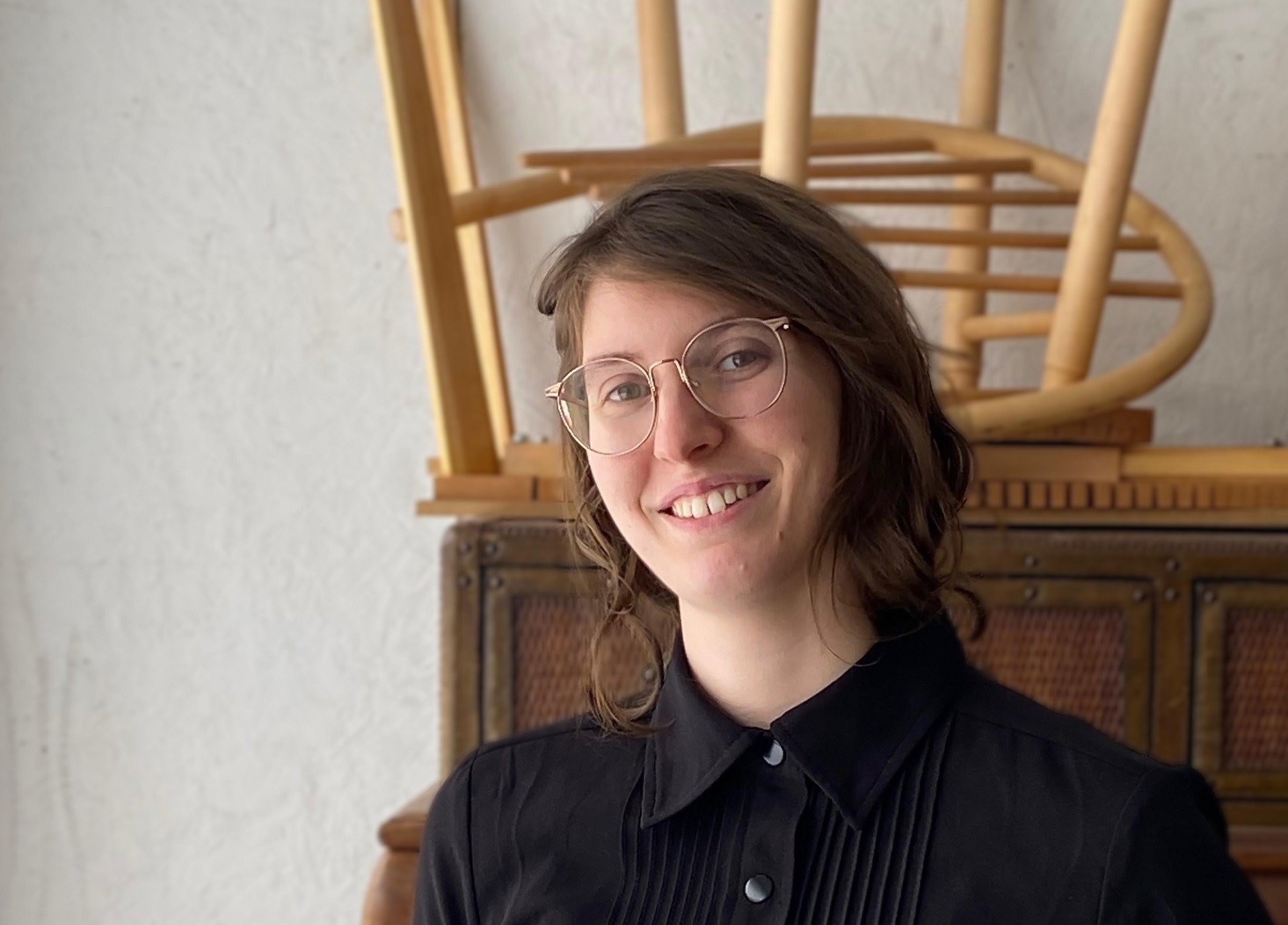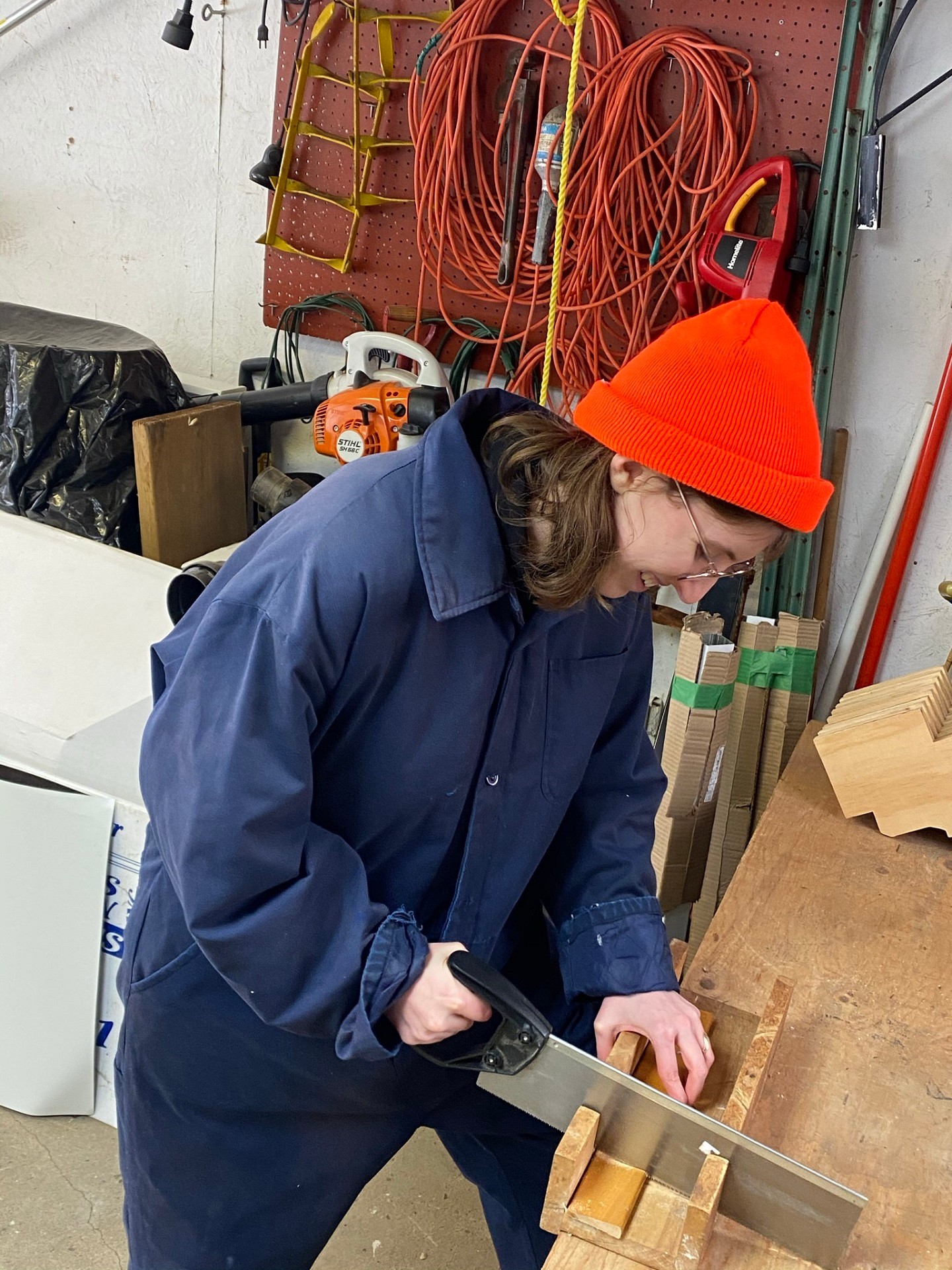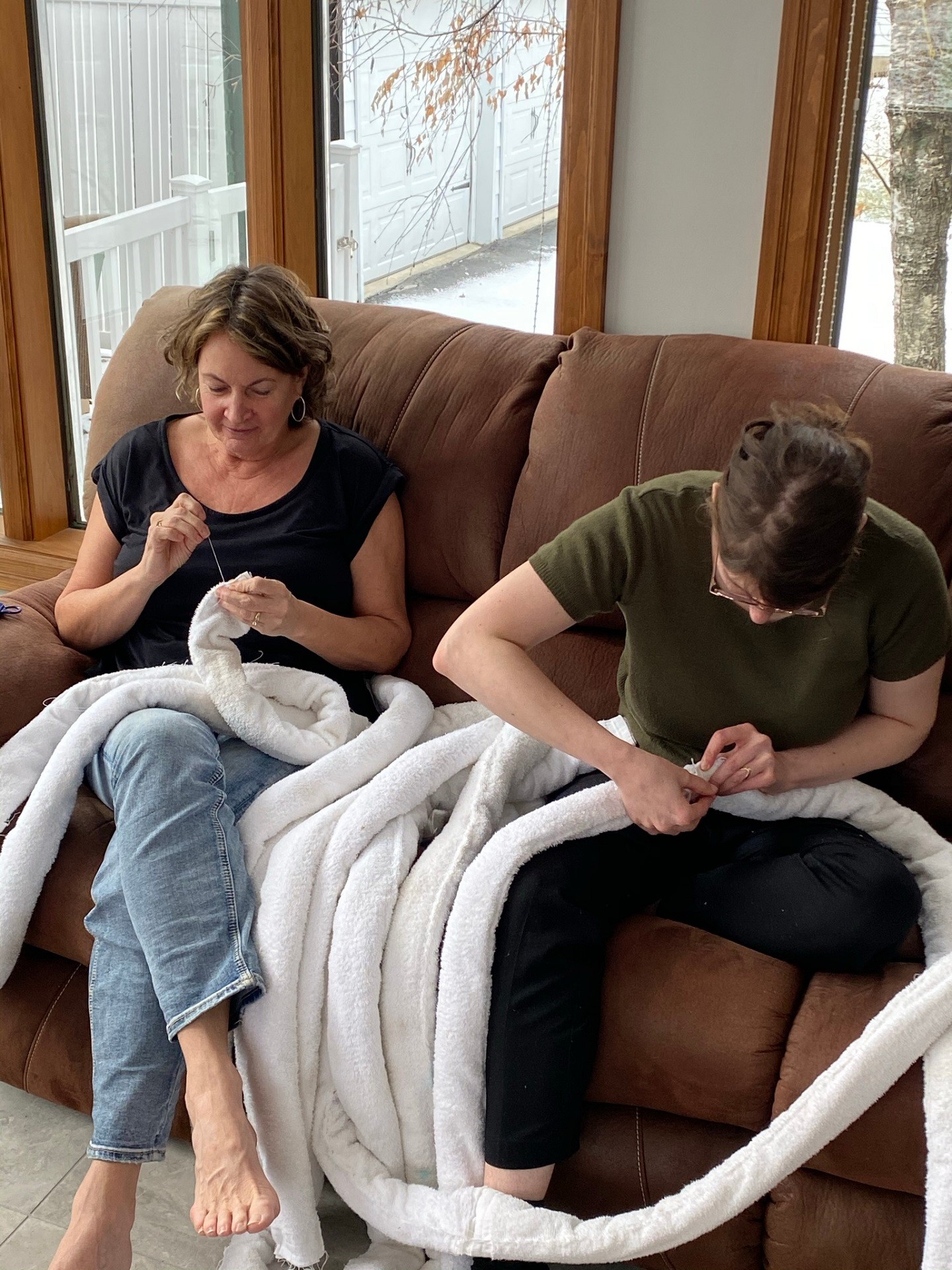Alicia Turgeon
"I'm making sustainable artwork."

Alicia Turgeon is an undergraduate student in the Department of Studio Arts, with a major in Sculpture. She is one of the Experiential Learning (EL) Grant recipients of 2020. She used the grant to complete an independent study investigating the principles of sustainable and hands-ons creation, and to produce online documentation to foster open discussion around discarded and inherited objects.

Alicia previously worked on her practice as part of a research supervised project by professor Kelly Jazvac, and the grant allowed her to expand her capacity of production and develop an independent project centered around relationship-building and DIY praxis. As a neurodiverse creator, she showed great commitment to exploring different systems for fostering exchange and facilitating active listening, as well as accessibility values among her communities.
By applying what she learned from her studies and experiences, she originally intended to fabricate a series of manually driven machines and contraptions to facilitate the repurposing of a variety of creative waste. The intended goal was then to create open-design documentation that could be reproduced and adapted with and by other students - challenging the boundaries of authorship and reflecting on social sustainability. It is not without challenges that Alicia succeeded to present and adapt her project in the particular circumstances of 2020.
“Quickly, it became apparent that the pandemic was becoming a real challenge in the accomplishment of my original project and in my life. Technically, the lack of access to the school facilities and my studio made it quite complex to find a safe way to execute the plans that I had put together. I also recognized that the drastic change in my routine was becoming a mental and physical burden. It would not have allowed me to sustain the same level of community involvement and social interactions as usual. In consequence, I took the decision to move back to my parents’ house and to reflect on what this research could accomplish and what new format it could take. That experience really pushed me out of my comfort zone and allowed me to prove and grow my capacities to adapt, improvise and self-direct.”
In the Winter of 2020, Alicia had already gathered discarded materials from CCURC and the Grey Nuns building, as well as many objects from her grandparents’ house after her grandfather passed away last March. “I decided to work on the same theme as my original proposal, but challenged my experience with storytelling, conversation, and journaling. I wondered what could be a decentralized way to approach home-made and DIY sustainable work. How to recontextualize and play with the abstract notions of what makes an inanimate matter “filthy”, “worthy” or “precious”. Using objects as holders of memory, I explored their materiality to embody routine and rituals. The genealogy of mundane artifacts is now a core dimension of my practice. I am invested in exploring the way we communicate, as well as the deeper tension between myself and my surroundings. ”

In her project Handle with Care, Alicia took an approach driven by the idea of radical care and self-awareness. Instead of creating new documentation for others to follow, Alicia dug through these objects and their inheritance to dress intimate portraits and reflect on intergenerational exchanges and skill reappropriation. “Through creating a visual and written archive, I focused on using them as a way to create moments between me and others. I wished to learn from these objects and photographs. I realized that they were a good body to drive the conversation. I organized sessions of work with my father and mother in which I learned different skills such as sewing. This is when I realized that I was able to gather many stories and intimate insight by bringing these objects and small projects to fruition. It was a way to reconnect with myself and with others; by creating these communal space and goals,” says Ms. Turgeon. From the idea of repurposing someone's clothes, to some forgotten family stories, to discussing how religion and institutions can tint objects and memories, Handle with Care really allowed her abilities to be invested in journaling, group reflection and critical discussion.
In the Fall of 2020, Alicia extended from her documentation to a series of sculptural work that she presented to her peers as a part of a sculpture course. “I was thrilled to also explore the deeper tension between myself and my surrounding; the object as a memory, as shape to fill or to fill with, as a way to express and take place, as an organized or disorganized structure, essentially as a mean and a medium of production that can be tinted by oneself. From this idea and my precedent work, I created three main series sculptures using found and recuperated materials.” It allows her to conceptualize and discuss with her peers and professors about how that kind of small-scale teaching and storytelling can find its place in the academic community.
Learn more about Handle With Care on this Instagram page.
Part of this project was supported by the Sustainability Research in 2019-2020.
This article was written by Emily Andrews.
